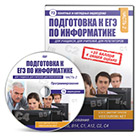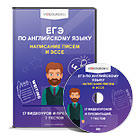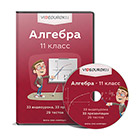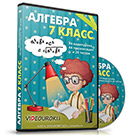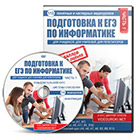Задания по Модулю № 1
по дисциплине «Английский язык для академических целей».
1. Составьте письменно рассказ (на английском зыке) из 15 предложений на одну из предложенных ниже тем:
MOTIVATION
1.Motivation is a goal-oriented characteristic that helps a person achieve his objectives. 2.It pushes an individual to work hard at achieving his or her goals. 3.An executive must have the right leadership traits to influence motivation. 4.However, there is no specific blueprint for motivation. 5.As a leader, one should keep an open perspective on human nature. 6.Motivation is critical to effective management and leadership. 7.Organizational productivity declines when employees are not motivated to fulfill the organization's objectives.8. But, what exactly is motivation, and how does it relate to you as you manage and lead your team? 9.Understanding the history of the word motivation can help us apply it to the business world.10.Motivation comes from the word "motive." 11. The original meaning of the word motive deals with movement. 12.Movement is central to motivation.13.What is it that then that causes any of us to move from where we are currently to another place?14.Motivation is all about our internal desire to accomplish something that is important to us. 15. This motivation (desire) makes us take action.
2. Составить глоссарий в объеме 60 единиц по предложенным темам (по 10 ед. по каждой теме).
Knowledge(руск.Знание)
Knowledge is the result of cognition of reality, verified by practice and verified by logic, reflected in the human mind in the form of representations, concepts, judgments and theories.
Knowledge is formed as a result of a focused pedagogical process, self-education and life experience.
Organization (От фр.Organisation – устраиваю)
Organization - in a broad sense - is a socio-economic system created to achieve commercial or non-commercial goals. Organization - in the narrow sense - an association of people who jointly implement a program or goal and act on the basis of certain rules and procedures.
Motivation - as a management function - the process of creating an internal incentive for the members of the organization to act in order to achieve the goals of the organization in accordance with the responsibilities delegated to it and in accordance with the plan.
Nature. Nature is a set of natural conditions for the existence of human society. Distinguish between primary and secondary nature.
Power
Power has different meanings when talking about different subjects: Power (physics), how fast energy can be changed into work. In sociology, power is the ability of a person to make another person do something.
Growth
It means an increase in some quantity over time. The quantity can be physical (e.g., growth in height, growth in an amount of money) or abstract (e.g., a system becoming more complex, an organism becoming more mature).
3. Найти 1 статью по своему профилю, направлению (специальности) на английском языке . Объем статьи – не менее1,5 - 2 страниц. Выслать эту статью с переводом на русский язык или казахский язык.
ICT in Education
The widespread use of Information and Communication Technologies (ICT) has till now influenced all fields in life, among which lies education. Many countries see ICT as a potential tool for change and innovation in the education field (Erdogan, 2009, adapted from Eurydice, 2001; Papanastasiou & Angeli, 2008) and thus, they make large investments in the integration of ICT in schools. For example, Europe and Central Asia allocate 22% of their budget to ICT (Erdogan, 2009, adapted from World Bank, 2007). According to Pelgrum and Law (2003) ICT in education became popular in educational policy-making in the early 1980s, when consumer market began the sale of cheap microcomputers. These intellectuals also noted that by the early introduction of microcomputers in education in 1980s, education was expected to be more effective and motivating.Hepp, Hinostroza, Laval and Rehbein (2004) advocated in their paper “Technology in Schools: Education, ICT and the Knowledge Society” that ever since the inception of ICTs in education, they have been used but not to its maximum. Although in the early 1980s computers were not been fully integrated in the learning of traditional subjects, the commonly accepted perception that the system of education would have to prepare the students for a knowledgeable society increased the interest in ICTs (Pelgrum, W.J., Law, N., 2003). Moreover, Kozma and Anderson (2002) write in their paper “ICT and Educational Reform in Developed and Developing Countries” that for an economy to be knowledgeable education should be its primary necessity. Simultaneously, the teaching strategies in schools are bending towards ICT. This change towards ICT has been very dramatic. Similarly, Kozma and Wagner (2003) agreed on that idea that the ICT will enhance the basic education and is a very challenging field of development work nowadays, in both poor and wealthy nations (Wagner, D., Kozma, R., 2003). Additionally, still in the field of ICT in education, Ezer (2005) points out that ‘the ICT for development literature often treats education ‘in passing”. Importance of ICT in schools ICT can be used in three ways at schools: for teachers to present, assess and monitor knowledge; to enhance administrative work; as “learning content in relationship to students’ information literacy” (Myungnghee Kang et al., 2011). STUDENTS: Over the past few years, several large-scale international studies have documented the successful integration of ICT in schools (Lim & Hang, 2003, adapted from Mann, Shakeshaft, Becker & Kottkamp, 1999; Sivin-Kachala, 1998; Wenglinsky, 1998). These research studies have shown that ICT facilitates the acquisition of higher order thinking skills by providing cognitive scaffoldings for students as they make sense of the information gathered; allowing experts, teachers and students to communicate their thoughts and interests in subject matters and simulating real-life situations and problems for students as they explore the connections between concepts and ideas. 21st century children choose to look for answers to their questions on the internet (Myungnghee Kang et al., 2011). Also, students who had followed ICT courses had more possibilities of being employed as most of the jobs nowadays require a good knowledge of ICT. Research studies have brought forward the fact that the use of ICT as well as other teaching strategies have enabled students to move to higher-order thinking (Jonassen & Carr, 2000; Kearney &Treagust, 2001; Oliver & Hannafin, 2000). Thus, students develop constructive thinking skills. As a result the students are learning in order to prepare themselves for the future information age.(Salomon, 1993). According Kozma (2005) ICT can be used to enhance student understanding thus increasing the quality of Education. In addition, Papert (1997) noted the advantages of ICT for students and they may be as such: the students are more motivated and as such they become more creative when they are faced with new learning environments. Also, they are prone to assimilate in a disciplined way working collaboratively with their peers. As a result, they are able to generate knowledge. They will have the capacity to handle rapid change in any type of environment. Some theorists acknowledge that ICT can help students to become knowledgeable, reduce the extent to which direct instructions are given to them, and give educators a chance to help those students with special educational needs needs (Iding, Crosby, & Speitel, 2002; Shamatha, Peressini, & Meymaris 2004; Romeo, 2006). EDUCATORS: The integration of technology in schools has brought about changes to teachers’ roles in the classroom. The classrooms where technology is being used have their teachers often compared to that of a facilitator or coach rather than a lecturer (Gahala, 2001, adapted from Henriquez & Riconscente, 1998). As educators use ICT in classroom, their teachings are proved to be very fruitful. Hence, in order to be at such level training is a must for all educators so that they acquire sufficient expertise for effective teaching. As a pedagogical tool ICT can provide a new framework so as to improve teaching. Hence, learning will be done in a collaborative, project-based as well as self-paced way. As students become more independent, teachers who are not familiar to act as facilitators or coaches may not understand how technology can be used as part of activities that are not teacher-directed. This is a situation where the teacher gets an excellent opportunity to learn from the students as well as to model being an information seeker, lifelong learner and risk taker. As part of their job requirements, teachers are expected to use technology tools in many cases. As technology continue to impact on teaching and learning, expectations on teachers to exploit technological advantages will rise, leading teachers to experience the pressures of having to toggle between pedagogy and technology in a seamless way (Teo, 2011, adapted from Pelgrum, 2001). The extent to which this is well-executed depends on teachers’ willingness to employ technology in teaching and learning. When teachers do not use technology the way it was designed to serve, the affordances of technology cannot be maximised for effective teaching and learning to take place. For this reason, many studies on technology acceptance have been conducted over the years and it appeared that these studies had focused on the identification of factors that influenced technology acceptance among teachers and students. These included personal factors such as attitudes towards computers (Teo 2011, adapted from Teo, 2008; Teo & Noyes, 2011), computer self-efficacy (Teo 2011, adapted from Tsai, Tsai & Hwang, 2010), technical factors such as technological complexity (Teo, 2011, adapted from Thong, Hong & Tam, 2002) and environmental factors such as facilitating conditions (Teo, 2011, adapted from Ngai, Poon & Chan, 2007).
ИКТ в образовании
Широкое использование информационных и коммуникационных технологий (ИКТ) до сих пор влияло на все сферы жизни, среди которых образование. Многие страны рассматривают ИКТ как потенциальный инструмент изменений и инноваций в сфере образования (Erdogan, 2009, адаптировано из Eurydice, 2001; Papanastasiou & Angeli, 2008) и, таким образом, они делают большие инвестиции в интеграцию ИКТ в школах. Например, Европа и Центральная Азия выделяют 22% своего бюджета на ИКТ (Эрдоган, 2009, адаптировано из Всемирного банка, 2007). Согласно Pelgrum and Law (2003), ИКТ в образовании стали популярными в образовательной политике в начале 1980-х годов, когда на потребительском рынке начались продажи дешевых микрокомпьютеров. Эти интеллектуалы также отметили, что к началу внедрения микрокомпьютеров в образовании в 1980-х годах образование должно было стать более эффективным и мотивирующим. Хепп, Хиностроза, Лаваль и Ребейн (2004) выступили в своей работе «Технология в школах: образование, ИКТ и Общество знаний », что с момента появления ИКТ в образовании они использовались, но не по максимуму. Хотя в начале 1980-х компьютеры не были полностью интегрированы в изучение традиционных предметов, общепринятое мнение о том, что система образования должна была бы подготовить учащихся к хорошо осведомленному обществу, повысило интерес к ИКТ (Pelgrum, WJ, Law, N ., 2003). Кроме того, Козма и Андерсон (2002) в своей статье «ИКТ и реформа образования в развитых и развивающихся странах» пишут, что для экономики, которая должна быть хорошо осведомленной, образование должно быть ее основной необходимостью. Одновременно стратегии обучения в школах смещаются в сторону ИКТ. Это изменение к ИКТ было очень драматичным. Точно так же Kozma и Wagner (2003) согласились с этой идеей о том, что ИКТ улучшат базовое образование и в настоящее время являются очень сложной областью работы в области развития как в бедных, так и в богатых странах (Wagner D., Kozma R., 2003). , Кроме того, все еще в области ИКТ в образовании, Эзер (2005) отмечает, что «литература по ИКТ для развития часто рассматривает образование» мимоходом ». Важность ИКТ в школах ИКТ можно использовать в школах тремя способами: чтобы учителя представляли, оценивали и контролировали знания; усилить административную работу; как «учебный контент в связи с информационной грамотностью студентов» (Myungnghee Kang et al., 2011). СТУДЕНТЫ: За последние несколько лет в нескольких крупных международных исследованиях была подтверждена успешная интеграция ИКТ в школах (Lim & Hang, 2003, адаптировано из Mann, Shakeshaft, Becker & Kottkamp, 1999; Sivin-Kachala, 1998; Wenglinsky, 1998). Эти исследования показали, что ИКТ способствуют приобретению навыков мышления более высокого порядка, предоставляя студентам когнитивные леса, поскольку они имеют смысл собранной информации; предоставление экспертам, преподавателям и студентам возможности высказывать свои мысли и интересы в предметных областях и моделирование реальных ситуаций и проблем для студентов при изучении связей между концепциями и идеями. Дети 21-го века предпочитают искать ответы на свои вопросы в Интернете (Myungnghee Kang et al., 2011). Кроме того, у студентов, прошедших курсы ИКТ, было больше возможностей трудоустройства, поскольку большинство рабочих мест в настоящее время требуют хорошего знания ИКТ. Исследовательские исследования выявили тот факт, что использование ИКТ, а также других стратегий обучения позволило студентам перейти к мышлению более высокого порядка (Jonassen & Carr, 2000; Kearney & Treagust, 2001; Oliver & Hannafin, 2000). Таким образом, студенты развивают навыки конструктивного мышления. В результате студенты учатся, чтобы подготовиться к будущему информационному веку (Salomon, 1993). По словам Козьмы (2005), ИКТ могут быть использованы для улучшения понимания учащихся, тем самым повышая качество образования. Кроме того, Papert (1997) отметил преимущества ИКТ для студентов, и они могут быть таковыми: студенты более мотивированы и, как таковые, они становятся более творческими, когда сталкиваются с новыми учебными средами. Кроме того, они склонны усваивать дисциплинированно, работая совместно со своими сверстниками. В результате они способны генерировать знания. Они смогут справиться с быстрыми изменениями в любой среде. Некоторые теоретики признают, что ИКТ могут помочь студентам стать хорошо осведомленными, уменьшить степень, в которой им даются прямые инструкции, и дать педагогам возможность помочь тем студентам с особыми образовательными потребностями (Iding, Crosby, & Speitel, 2002; Shamatha, Peressini & Meymaris 2004; Romeo, 2006). ОБРАЗОВАТЕЛИ: Интеграция технологий в школах привела к изменениям в роли учителей в классе. В классных комнатах, где используются технологии, учителей часто сравнивают с преподавателями, а не преподавателями (Gahala, 2001, адаптировано из Henriquez & Riconscente, 1998). Поскольку преподаватели используют ИКТ в классе, их обучение оказалось очень плодотворным. Следовательно, для того, чтобы быть на таком уровне, обучение является обязательным для всех преподавателей, чтобы они приобрели достаточный опыт для эффективного обучения. В качестве педагогического инструмента ИКТ могут обеспечить новую основу для улучшения обучения. Следовательно, обучение будет проводиться как на совместной основе, на основе проектов, так и в самостоятельном темпе. По мере того, как ученики становятся более независимыми, учителя, которые не знакомы с тем, чтобы выступать в роли фасилитаторов или тренеров, могут не понимать, как технологии могут использоваться в рамках деятельности, которая не направлена на учителей. Это ситуация, когда учитель получает отличную возможность учиться у учеников, а также моделировать, как ищущий информацию, пожизненный ученик и рискующий. В рамках своих требований к работе учителя должны использовать технологические инструменты во многих случаях. Поскольку технологии продолжают оказывать влияние на преподавание и обучение, ожидания учителей использовать технологические преимущества будут расти, что приведет к тому, что учителя столкнутся с необходимостью плавного переключения между педагогикой и технологией (Teo, 2011, адаптировано из Pelgrum, 2001). Степень, в которой это хорошо выполняется, зависит от готовности учителей использовать технологии в преподавании и обучении. Когда учителя не используют технологии так, как они были задуманы, возможности технологии не могут быть максимально увеличены для эффективного преподавания и обучения. По этой причине многие исследования по принятию технологий проводились на протяжении многих лет, и оказалось, что эти исследования были направлены на выявление факторов, влияющих на принятие технологий учителями и учащимися. К ним относятся личные факторы, такие как отношение к компьютерам (Teo 2011, адаптировано из Teo, 2008; Teo & Noyes, 2011), компьютерная самоэффективность (Teo 2011, адаптировано из Tsai, Tsai & Hwang, 2010), технические факторы, такие как технологические сложность (Teo, 2011, адаптировано из Thong, Hong & Tam, 2002) и факторы окружающей среды, такие как облегчающие условия (Teo, 2011, адаптировано из Ngai, Poon & Chan, 2007).
4. Сделать статье аннотацию из 10-15 предложений, соблюдая принятую структуру.
ICT in Education
Digital culture and digital literacy: Computer technologies and other aspects of digital culture have changed the ways people live, work, play, and learn, impacting the construction and distribution of knowledge and power around the world. Graduates who are less familiar with digital culture are increasingly at a disadvantage in the national and global economy. Digital literacy—the skills of searching for, discerning, and producing information, as well as the critical use of new media for full participation in society—has thus become an important consideration for curriculum frameworks.
ИКТ в образовании
Цифровая культура и цифровая грамотность: компьютерные технологии и другие аспекты цифровой культуры изменили образ жизни, работу, игру и обучение людей, оказывая влияние на формирование и распространение знаний и власти по всему миру. Выпускники, которые менее знакомы с цифровая культура все больше оказывается в невыгодном положении в национальной и мировой экономике. Таким образом, цифровая грамотность - навыки поиска, распознавания и производства информации, а также критическое использование новых средств массовой информации для полноценного участия в жизни общества - стали важным фактором для разработки учебных программ






